BFI London Film Festival: Week 3 – Awards Contenders & Hidden Gems

Alistair is a 25 year old writer based in Cambridge.…
This week has finally seen the London Film Festival open to the public- and now, British movie fans are getting their first chance to see the year’s most talked about films. In our third dispatch, we start looking towards the year’s biggest awards contenders, as well as still keep an eye out for under the radar efforts.
Battle of the Sexes (Valerie Faris & Jonathan Dayton)
Ryan Morris: For a film so triumphant, about such an important moment of sporting and gender equality history, Battle of the Sexes is an oddly emotionless film. Directors Valerie Faris and Jonathan Dayton serve up a lot in their film – Battle of the Sexes is part sport drama, part political drama, part love story, part period piece – but perhaps this is its focal undoing. The film has so much on its plate that it simply doesn’t have the time nor energy to really push any singular element.
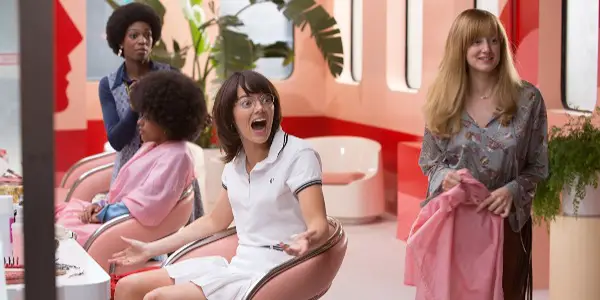
What we do have, though, is a film that is universally enjoyable, even if lacking one singular runaway success. Boasting yet another terrific performance from Emma Stone (in a quieter role than her iconic La La Land turn, but equally impressive), Battle of the Sexes runs through its two hour runtime smoothly enough. The cinematography occasionally shows glimpses of taking on a more flamboyant aesthetic but for the most part remains simply effective, the soundtrack is rarely noticeable but suits the film nicely, and supporting performances (while all firmly in Stone’s shadow) do justice to their characters.
So Battle of the Sexes is a well crafted film, and it’s potentially the most crowd pleasing feature you’ll see all year, but it just lacks the oomph to fall firmly into greatness. I’d like to see Stone pick up her third Oscar nomination for this role, but beyond that it’s tough to find a part of this film that really soars beyond expectations. Perhaps Faris and Dayton should have picked an element of this story to focus the spotlight on more prominently than others, as what we’re left with is a supremely entertaining film that just never quite finds its stride.
Bobbi Jene (Elvira Lind)
Chloe Walker: Bobbi Jene Smith is an American dancer who, from ages twenty-one to thirty, was a member of the world-renowned Batsheva Dance Company in Israel. Deciding the time has come to move in her own direction, she returns to America to make a name for herself. Leaving her friends, particularly her younger boyfriend Or, proves a bigger challenge than she’d anticipated.
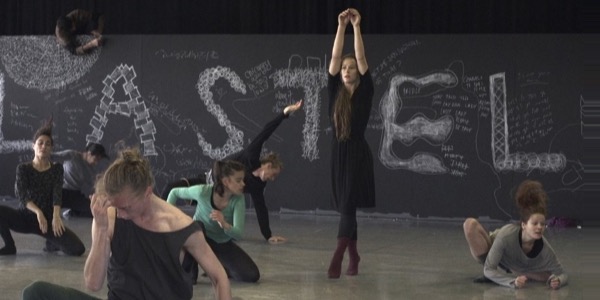
As someone left cold by contemporary dance, Bobbi Jene was a revelation. It helps that, unlike in fellow dance documentary Pina, the dance doesn’t take up the whole film. You see enough, but more focus is placed on Bobbi’s relationship with Or and with her family.
Befitting a documentary that follows a dancer known for incorporating nudity into her performances, Elvira Lind’s film is intimate and informal. There are no on-screen titles explaining who people are, and only a couple of direct addresses to camera. Lind just places you at Bobbi’s side, and lets you watch as she experiences the most momentous year of her life.
The result is an engrossing film, one that, to a greater degree than in similar documentaries, makes you feel you have a good grasp of this person and what she’s all about. To leave her secure job, her friends, her boyfriend, and her home of nearly a decade, is a hugely courageous move. She speaks with such honesty about it, which makes her conversations (one of them with Laura Dern), riveting.
Truthful, compelling and personal, Bobbi Jene is a vital portrait of an inspiring artist.
Breathe (Andy Serkis)
Ryan Morris: Let’s be honest, when we all heard what Andy Serkis’ directorial debut would be focused on, we all felt a little deflated. An extraordinary actor settling on a film that sounded like we’d all seen it before. Breathe is a disability biopic set in the past, so it already ticks all the boxes of an empowering slice of British cinema, but as a debut for Serkis’ directorial efforts it can’t help but underwhelm. There’s just no character to what he presents us with here, no identity or personality or uniqueness. Serkis can frame an image effectively, but he doesn’t yet have a stamp to put on it.
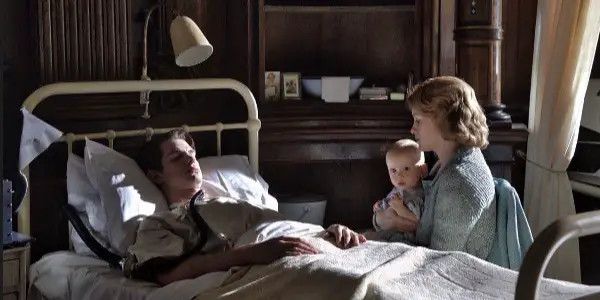
Thankfully what Serkis does have are two terrific actors to lead his film, and they shine brightest perhaps when Breathe is at its most mundane. Both Andrew Garfield and Claire Foy are actors with a strong ability to succeed with both power and subtlety, frequently within the same scene. Garfield, for example, is just as affecting here when he’s on the outskirts of the frame reacting to other people as he is when his character gives a big, triumphant speech, and Foy understands and encapsulates her character so effectively that it’s impossible not to feel choked up by her performance in the film’s final act.
Breathe’s story is undeniably a powerful one, and it’s a story we’d perhaps all be better off knowing, but as a film this doesn’t really leap off the screen. Serkis is clearly mesmerised and inspired by the story he’s giving us but the astonishing nature of what we’re watching is rarely felt. With his overly cursive title font and romantically heightened framing, Serkis allows the first act to invoke feelings of a classic Hollywood style, but where films like La La Land use the past to create something both nostalgic and modern, Breathe’s attempts border on parody. Thankfully Serkis soon abandons this style and his film picks up, but it isn’t quite enough to save Breathe from the mundanity of its own storytelling.
Israfil (Ida Panahandeh)
Chloe Walker: Soon after the tragic death of her only son, widow Mahi (Hediyeh Tehrani) receives an unexpected visitor hoping to pay their respects. Behrouz (Pejman Bazeghi) was her childhood sweetheart before her uncle put a violent end to their relationship, driving him away. Though they haven’t seen each other for twenty years, it isn’t long before they have recaptured that old spark. Complicating matters is Sara (Hoda Zeinolabedin), who had been getting close to Behrouz before he re-entered Mahi’s life. There’s a decision to be made, and it isn’t going to be easy.
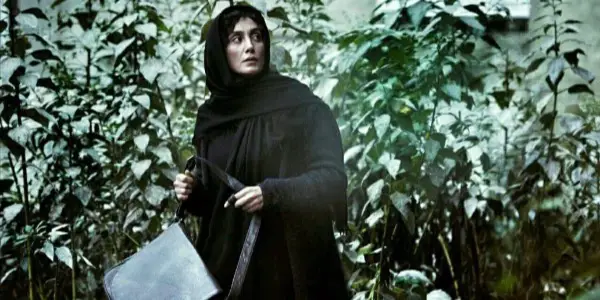
Ida Panahandeh’s third feature is a delicate, character-driven story, largely set in a beautiful town built into the Alborz mountain range in northern Iran. It’s a rapturous setting put to great use by the director. In a film as understated as Israfil, it could almost be considered a special effect.
Panahandeh and Arsalan Amiri’s screenplay is precise and nuanced; the character in each corner of the love triangle is granted a history, motivations and their own complex relationships.
Panahandeh is so determined to give each of the leads a fair shake, she positions the entire second act in Tehran to show us the separate family drama that Sara is dealing with. That dedication to portraying the wholeness of these characters, combined with three subtle but heartfelt performances, makes Israfil a quiet gem that you can really get lost in.
Liyana (Aaron Kopp & Amanda Kopp)
Chloe Walker: A group of children living in a care home in Swaziland, who have been through various atrocities, are given a workshop in storytelling by author Gcina Mholpe. Together they create Liyana, a brave heroine who undertakes a great adventure, besting many a dangerous animal and even more dangerous human along the way.

It doesn’t take a genius to figure out that these kids are going to write about what they know; to ground Liyana’s story in details of their own. Yet the documentary feels the need to tell us this again and again, through Mholpe, the kids themselves, and finally via maddeningly unnecessary on-screen statistics. Liyana doesn’t trust the audience to think for themselves, and that gets waring quickly.
The best parts of this film come when the kids are narrating their story. They take great pleasure in acting it out, providing sound effects and drama however they can, and their palpable enjoyment in the process is lovely to witness. The colourful animation that accompanies the tale is also rather fetching.
Whilst as a piece of cinema it doesn’t amount to very much, it’s impossible to deny the charm and bravery of Liyana’s young narrators. Their enthusiasm cuts through many of the film’s larger flaws.
A Moment in the Reeds (Mikko Makela)
Alistair Ryder: Stop me if you think you’ve heard this one before; a young gay man in a rural setting ends up falling for an immigrant hired to do manual work on a piece of land owned by his family. The narrative similarities between God’s Own Country are extraordinarily coincidental, but shouldn’t be held against this film, as both were in production in different corners of the globe at the same time.
Billed as Finland’s first LGBT romance film by director Mikko Makela, this emotionally arresting feature debut deserves to be heaped with the same praise that Francis Lee’s debut was afforded upon its premiere earlier this year. This is a far more subtle proposition than God’s Own Country, yet it still has plenty to say on love, sexuality and immigration, all wrapped up in one of the year’s most moving romance narratives.
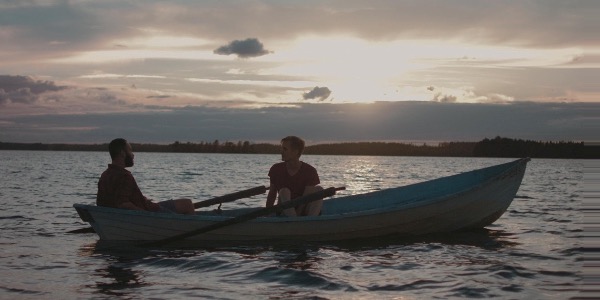
Here, a relationship slowly blossoms between Tareeq (Boodi Kabbani), a Syrian immigrant finding it hard to adapt to life in Finland, and Leevi (Jaume Puustinen), who has returned to Finland from Paris to help his dad fix up their lake house ready to put on the market. When Leevi’s father is called away on a few days for a business trip, the two men slowly get to know each other- growing into a rich, tender and affecting relationship as they finally make the meaningful bonds that have alluded them during their time in Finland.
Both actors deserve credit for accurately conveying an initial social awkwardness that slowly blossoms into something deeper; both speaking in English, as Tareeq is unfamiliar with Finnish, their subtle transition from being uncomfortable speaking in a foreign tongue, to being able to fluently communicate their emotions as they develop stronger feelings for each other, is winningly underplayed by both actors. During the film’s sexually charged, most intimate moments, the two actors have done such a perfect job cementing a believable relationship between the characters that no sex scene feels exploitative – they feel essential to the narrative, and all depicted in a beautifully loving way.
After initial trepidation due to the familiar narrative, A Moment in the Reeds quickly became my biggest surprise of the London Film Festival. It’s a wonderful romance that deserves to not only be mentioned in the same breath as God’s Own Country, but be allowed to stand alongside it as one of the most moving gay romance stories of recent years.
Pickups (Jamie Thraves)
Alistair Ryder: Reuniting star Aidan Gillen with director Jamie Thraves, Pickups is a loosely autobiographical and overbearingly metafictional drama that might just be the most insufferable film I’ve sat through at this year’s festival. Gillen stars as Aidan, an obvious fictional stand-in for the real actor, who is going through a divorce while preparing to shoot a brand new movie, in which he plays a serial killer.
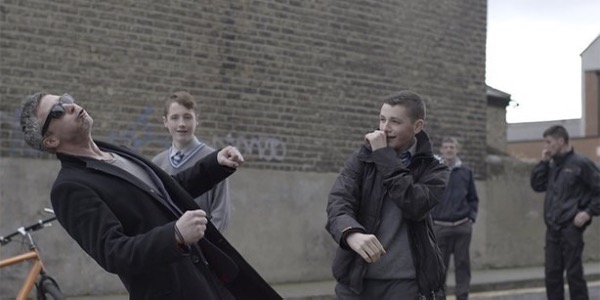
The catch? Well, the director of the fictional film is Jamie Thraves, and the serial killer drama IS the film we are watching – as laid bare in one scene, where Gillen waxes lyrical to an old friend that the film he’s making is a combination of documentary and serial killer thriller. Even at a thin feature length of 73 minutes, this conceit is already stretched thin by its halfway point, and both Gillen and Thrives (who co-wrote the screenplay together) know it too, all but abandoning the meta narrative to become an earnest family drama about a divorced father.
This thinly drawn conceit could be bearable if there was any humour to it. Unfortunately, the attempts at comedy are painful to watch – a drawn out sequence where Gillen is being aggressively hit on by a woman calling herself (and I quote) “Hot Cunt Charley” might be the biggest crime committed against the concept of humour at the entire festival.
With nothing new to say on celebrity, no innovations on the utilisation of the meta elements and most distressingly, nothing remotely funny whatsoever, Pickups feels at least twice as long as its running time. It feels like a storytelling experiment between two friends that has got badly out of hand, turned into a borderline feature length effort that presents the celebrity status of the lead character in such a self aggrandising light, it made me think less of Aidan Gillen as a result.
Strangled (Árpád Sopsits)
Alistair Ryder: Based on a true story, Strangled is a sixties set Hungarian serial killer mystery is unpleasant in the worst possible way – documenting the necrophiliac crimes of the real life antagonist in a manner that feels less than necessary, feeling equal parts tedious and exploitative. Knowing very little about the real life case prior to viewing, I suspect a lot of narrative concessions were made in order to transform this into a very generic, stereotypical crime procedural, albeit one that contains multiple unnecessary scenes of a man getting freaky with a dead body.
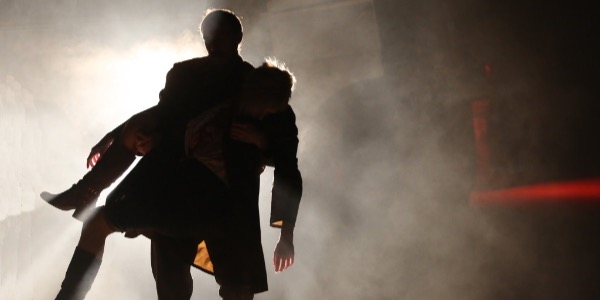
Which is a shame, because the real life case has plenty to say about suffocating bureaucracy under an age of authoritarian rule, where the need to see a man sent to death for these crimes is more urgent than catching the correct perpetrator. This theme is recurrent, yet irritatingly under utilised, with director Árpád Sopsits largely evading the surrounding context in order to make a Zodiac derivative that offers little innovation or substance to the already overpopulated true crime genre.Instead of being livid at the idea of the wrong man being imprisoned for crimes he didn’t commit, placed on death row by a bloodthirsty, justice craving society, the film spends too much time documenting the crimes being committed to ever focus on the real plight of the wrongly convicted man behind bars.
As a police procedural, Strangled is often dull (although moments like a frenetic foot chase sequence see it spontaneously, briefly, burst into life), and as a film based on real events it does absolutely no justice to the socio-political complexities of the case. It’s merely an overly exploitative thriller, that left me every bit as cold as the serial killer’s victims.
Tiger Girl (Jakob Lass)
Ryan Morris: Much like its protagonist, Tiger Girl threatens to derail at seemingly any moment. It’s hard to tell if this is a conscious decision by director Jakob Lass, and perhaps even harder to pinpoint what it is about Tiger Girl that feels so unstable. This is a good film, and one I’d recommend audiences seek out at the London Film Festival, but it’s tough viewing in that you never quite feel like you’re in safe hands.
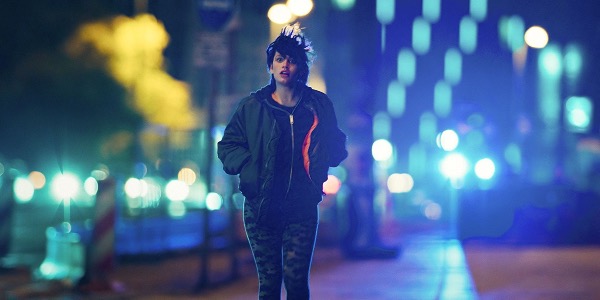
What Tiger Girl definitely has going for it is a commanding performance from Ella Rumpf, who recently saw similar success in the standout Raw. Rumpf has a way of playing deranged characters with an element of humanity to them, she keeps them grounded and reminds us that, despite the lunacy on display, these are still people. Maria-Victoria Dragus takes on the lead role here, and her performance is likeable and engaging, but Rumpf is the one you come away remembering.
As a 90 minute character study, Tiger Girl works nicely. Vanilla’s slow descent from goody two shoes into something more animalistic is handled well by both director and actress, and the film finds time for a surprising amount of humour, but there’s just something here that isn’t clicking. Perhaps Tiger Girl needs a further element, an additional character that allows us to see deeper into Vanilla’s life away from her security training. The film we have before us is good, but it lacks the depth and bite to be truly great.
This is Our Land (Lucas Belvaux)
Alistair Ryder: Considering the turbulent political events that have taken place in Western Society in the past eighteen months, now is really not the time for subtlety when calling them out and sharply critiquing them. Released in France a couple of months before the presidential elections that saw far right candidate Marine Le Pen elevated to the final round, director Lucas Belvaux‘s dark dramatisation of the far right’s normalisation in Western Society possesses a political urgency that makes it feel vital – although it may not be easy to overlook many of its narrative flaws.
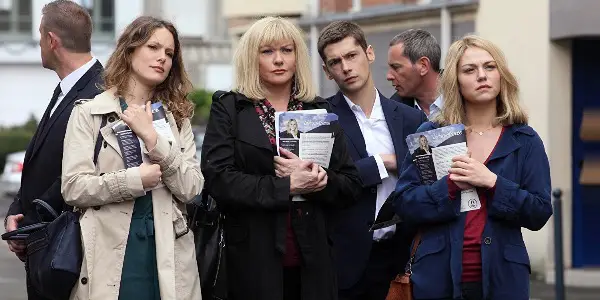
In the fictional town of Henart, popular local nurse Pauline (Emilie Dequenne) is preyed upon by a leading member of a rebranded far right party (André Dussollier) who desperately needs to find a mayoral candidate in this working class area. Pauline considers herself to be apolitical, leaning more to the left if she had to choose a side. However, she is soon whisked away to a speech by Marine Le Pen stand-in Agnès Dorgelle (Catherine Jacob), and convinced to stand for a mayoral position. However, her relationship with a former member of the army (Guillaume Gouix) threatens have turbulent repercussions, unbeknownst to her, that threaten the far right’s aim to shed themselves of overt racist ties.
As a piece of political cinema, This is Our Land is undeniably overblown in its merciless examination of how would-be authoritarian politicians have managed to rebrand themselves as “populist” purveyors of “common sense” politics. But that doesn’t mean it isn’t intelligent in how it portrays the normalisation of hateful rhetoric – it just frequently gets too narratively contrived in how it manages to easily get noted neo-nazis to ingratiate themselves in Pauline’s life, only paying off in a cringe inducing ending that should have been left on the cutting room floor in favour of something more ambiguous.
While watching This is Our Land, I felt like I was watching a vital piece of cinema, but in the week between watching it and writing this review, I’ve soured on it somewhat. It isn’t due to the lack of subtlety (we need to be as loud as possible when disavowing those on the far right), but due to a lack of believability in some areas, and the overly naive characterisation of Pauline, who frequently appears to be unaware of the racist depths of the political party even as members are shouting racial epithets in front of her. It’s essential viewing for its damning critiques, even if it is too thematically overblown.
Chloe Walker: This Frenchwoman is known by many as the softer face of her father’s far-right politics. She’s blonde, and often referred to by her first name only. No, it’s not Marine Le Pen, though she is doubtless the model for Agnes (Catherine Jacob), head of the Renewed Nation Party (RNP).
Apolitical nurse Pauline (Emilie Dequenne), has been a pillar of the community for years, and is recruited to run for mayor of Henárt under the banner of the RNP. Her new position wrecks her life; she is used as a pawn to promote racist ideas she doesn’t agree with, and ostracised by her left-wing friends. She can’t trust anyone.
As you can tell from the Le Pen/Agnes situation, This Is Our Land is not subtle, but it hits on several emotional truths. A tense barbecue will be familiar to anyone who has had awkward, politically divergent social gatherings in this Brexit/Trump era. It’s also astute in noting how good far-right politicians can be in dressing up their racist ideas in a way that makes them sound perilously close to common sense.
Events develop at such an unrealistic pace that lots of what we see rings hollow. There’s not so much a story arc as a mess of ideas that are thrown at the screen. Some stick, some don’t, which means that This Is Our Land is only ever sporadically interesting. Lucas Belvaux doesn’t seem to know how to end his film, and so the coda feels both confusing and tacked on. There’s good here, but not enough.
Wonderstruck (Todd Haynes)
Ryan Morris: Todd Haynes’ Wonderstruck is a film of two halves, each of them just as gorgeous as the other. We split our time between 1927 and 1977, where we watch two deaf children (Rose in ‘27, Ben in ‘77) each run away from their families in search of someone important to them. On paper Wonderstruck sounds like a fairytale, and it would be hard to describe the film without making it sound a tad childish, but what Haynes has crafted here is a grown up, deeply thoughtful feature that never stops dazzling you across its two hour runtime.
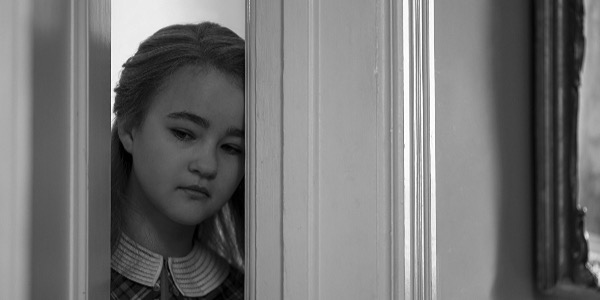
The 1927 scenes are stunningly presented in black and white, infused by the magic of olden cinema – the protagonist here is deaf, and so the only sounds we get are the film’s sweeping, award worthy soundtrack. In one scene, Rose heads out to watch a film her idol stars in, and Haynes captures the moment beautifully. It’s nostalgic without being cynical, moving without being manipulative. Wonderstruck has such a firm control over its emotional core that you never feel like the film is trying to making you cry, but when it reaches its breathtaking climax you’ll probably be moved to tears anyway.
In 1977 the film takes a few more liberties with its portrayal of deafness, but it still finds something heartwarming in Ben’s newfound friendship with Jamie. There’s fun to be had with this story, but again Haynes displays a deft control with how he presents this to us. The humour is mostly subtle and child friendly, but always bound to something mature and life changing for the characters. Wonderstruck is a beautiful film from its opening frame right to its last, and it takes you on a powerful, emotional story between them. Undoubtedly my favourite film of the London Film Festival so far, Wonderstruck isn’t only its title – it’s also the feeling it left me with.
We’ll be back with another London Film Festival dispatch next week. Which of these movies are you most looking forward to?
Does content like this matter to you?
Become a Member and support film journalism. Unlock access to all of Film Inquiry`s great articles. Join a community of like-minded readers who are passionate about cinema - get access to our private members Network, give back to independent filmmakers, and more.
Alistair is a 25 year old writer based in Cambridge. He has been writing about film since the start of 2014, and in addition to Film Inquiry, regularly contributes to Gay Essential and The Digital Fix, with additional bylines in Film Stories, the BFI and Vague Visages. Because of his work for Film Inquiry, he is a recognised member of GALECA, the Gay & Lesbian Entertainment Critics' Association.













